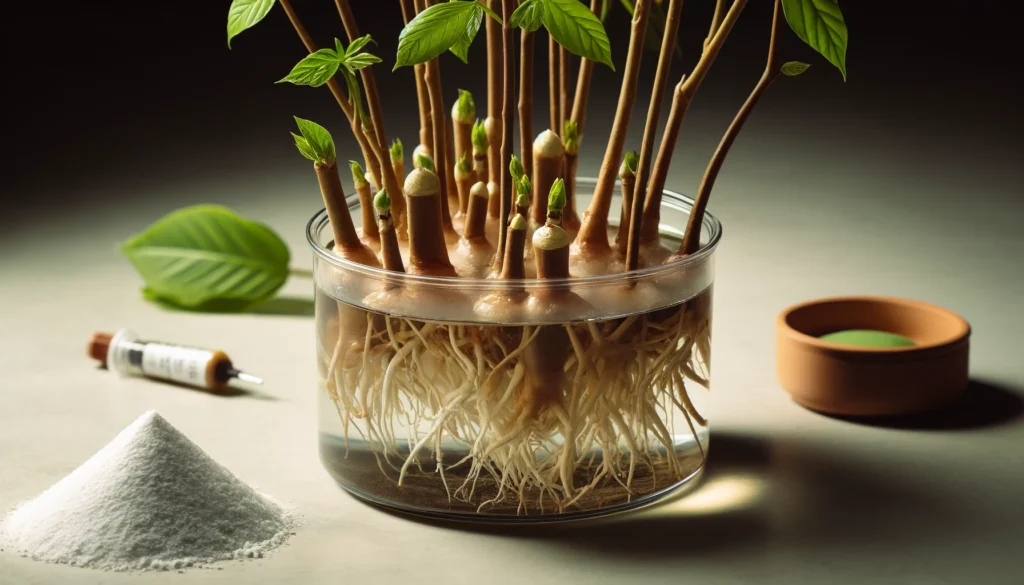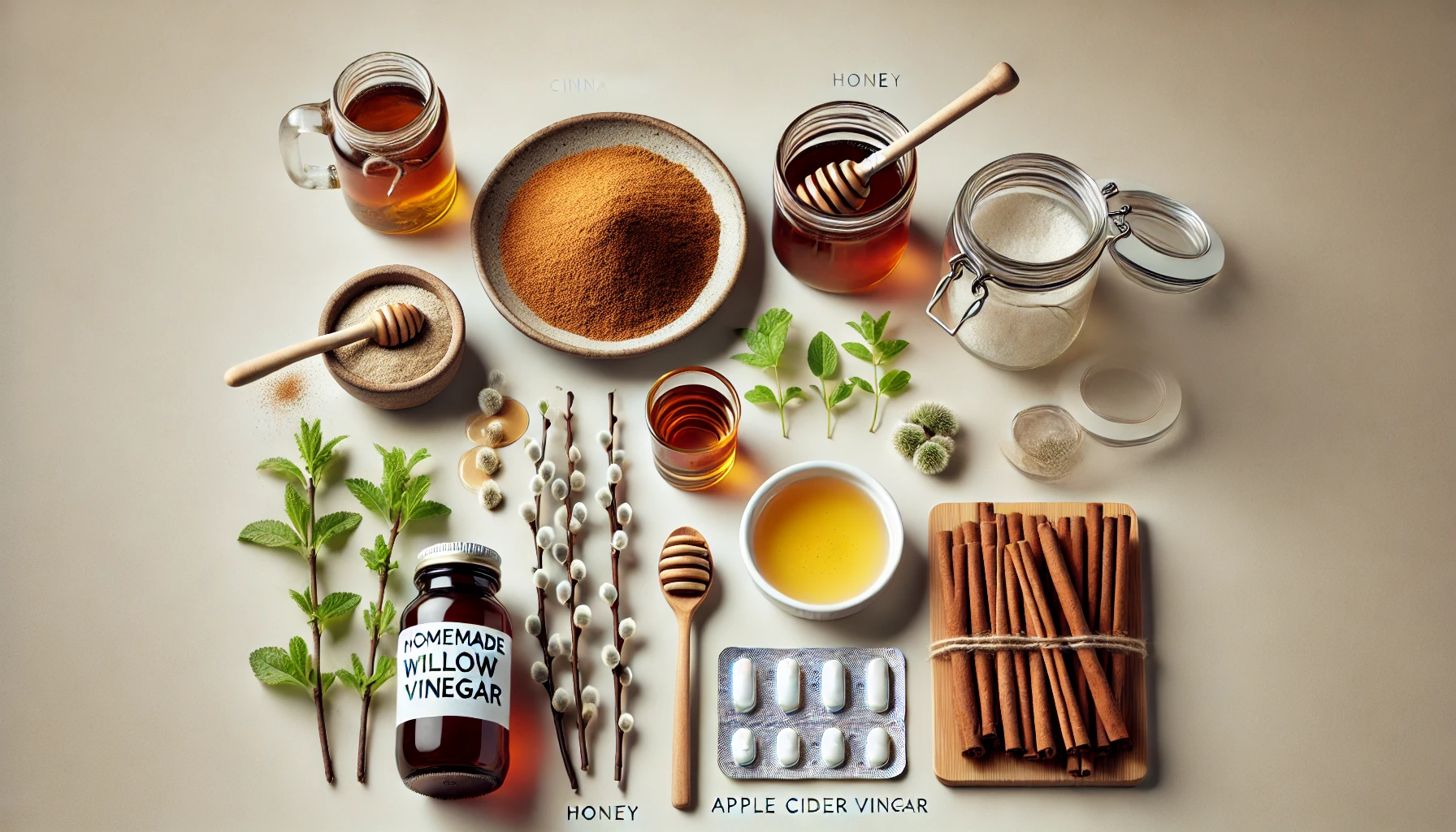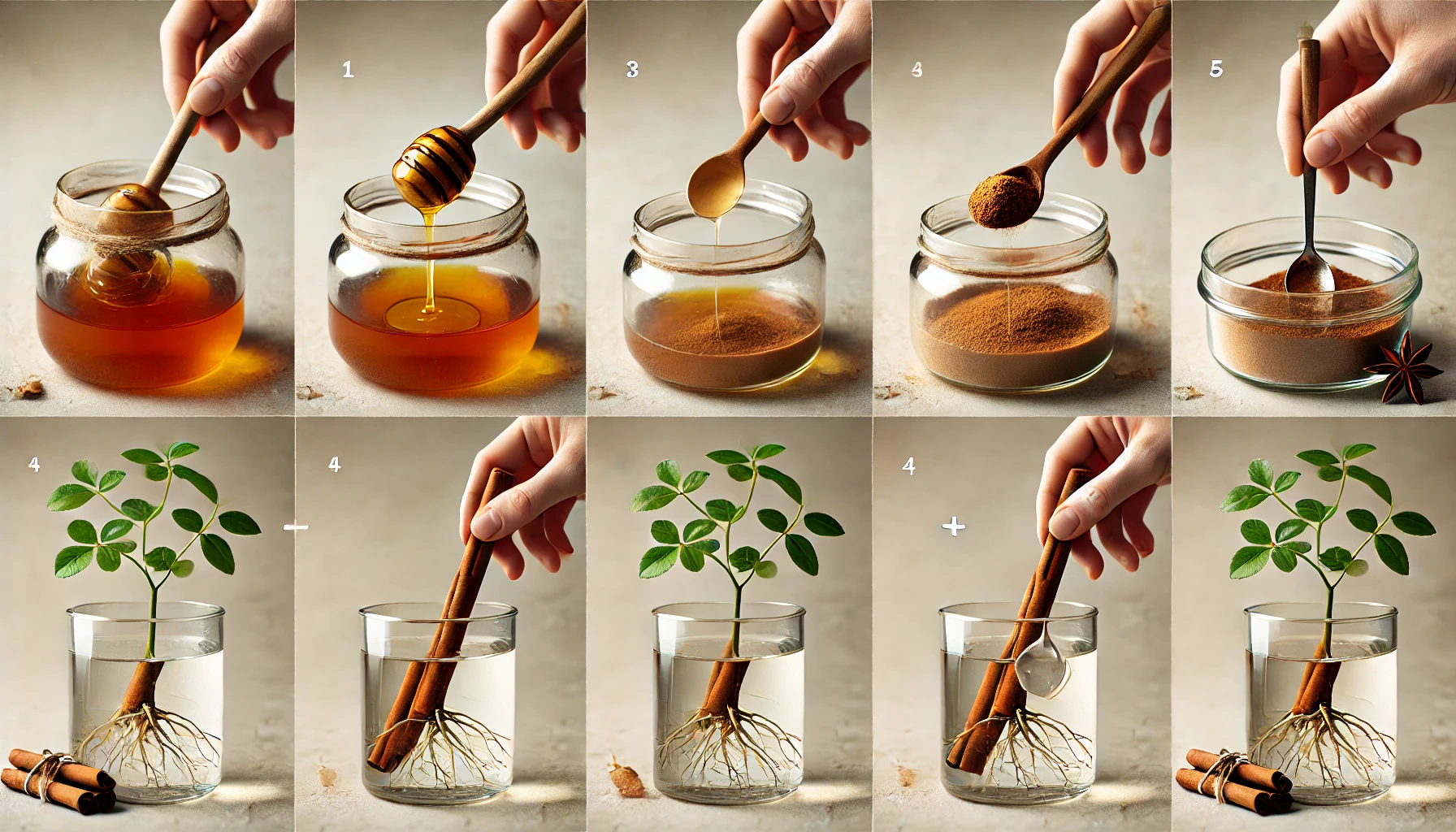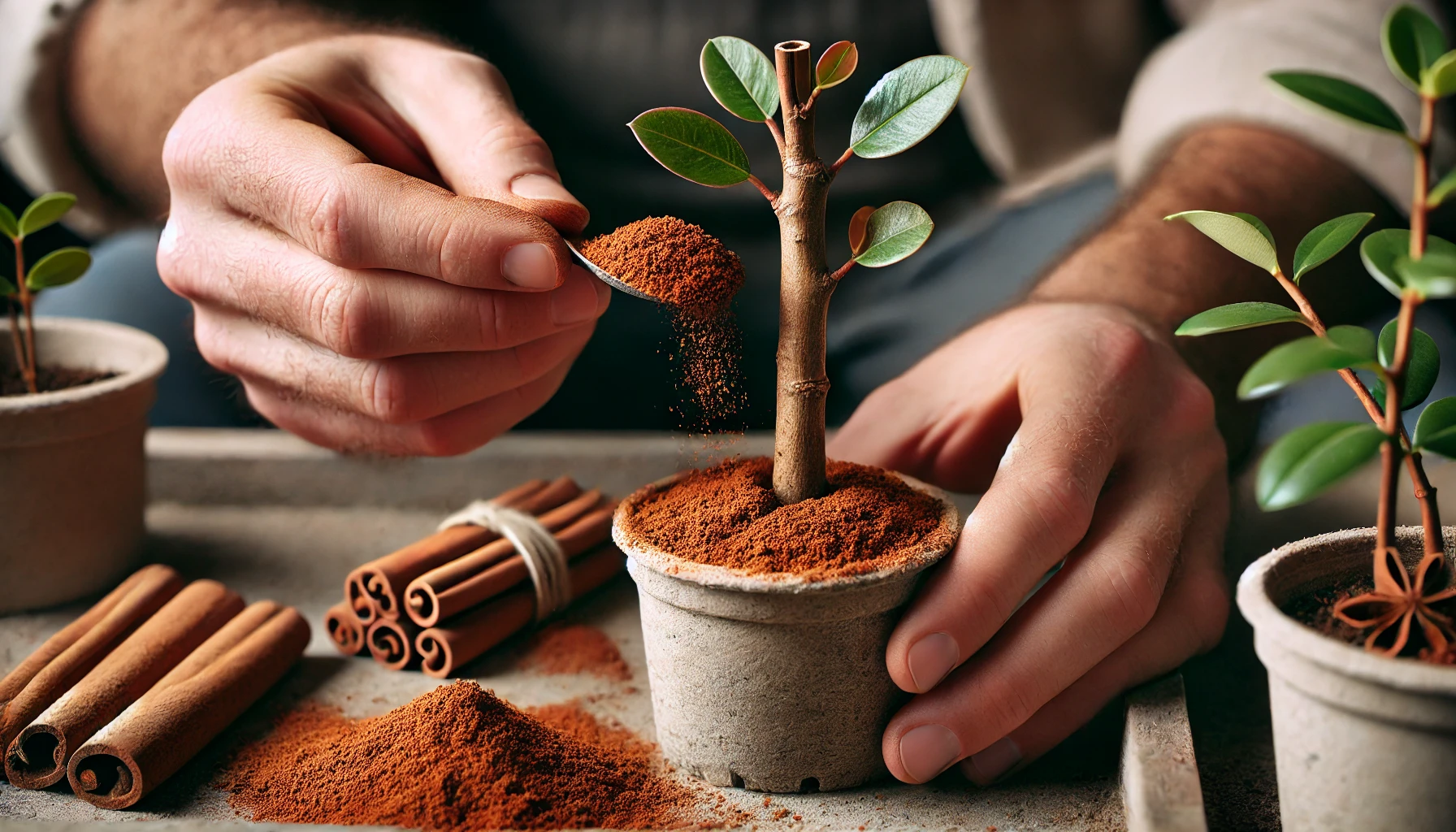
How to Make Homemade Rooting Hormone: Easy DIY Methods for Successful Plant Propagation
If you’re passionate about growing plants and want to take your propagation skills to the next level, learning how to make homemade rooting hormone can be a game-changer. Instead of relying on store-bought products, you can easily create effective rooting hormones right at home using natural ingredients. Not only does this save you money, but it also gives you more control over your plant care routine. In this guide, we’ll walk you through simple, DIY methods for creating your own rooting hormone that can boost the success of your plant cuttings and help you grow healthy, thriving plants faster.
Table of Contents
ToggleWhat is Rooting Hormone?
Rooting hormone is a plant growth regulator used to encourage root development in plant cuttings. It contains synthetic or natural compounds that help stimulate the growth of roots, making it easier for cuttings to establish themselves in soil or water. While not always necessary, using rooting hormone can speed up the rooting process and improve the chances of success, especially with harder-to-root plants.
There are two main types of rooting hormones:
- Powdered: The most common form, simply dip the cutting into the powder before planting it in the soil.
- Liquid: Often diluted in water and applied to the base of the cutting.
When using rooting hormone, it’s important to apply it only to the cut end of the stem, as this is where root growth will begin. Always follow the manufacturer’s instructions, as overuse can be harmful to the plant.
In summary, rooting hormone is a helpful tool for promoting strong, healthy roots, making it easier to propagate your vining plants successfully. Whether you’re an experienced gardener or a beginner, it’s worth considering for quicker and more reliable results.
Why Make Homemade Rooting Hormone?
Making your own rooting hormone can be a game-changer for plant propagation. Not only is it cost-effective, but it also allows you to control the ingredients, ensuring a more natural and organic approach to encouraging root growth.
Cost-Effective Solution
Store-bought rooting hormones can be expensive, especially if you’re propagating multiple plants. Homemade versions, however, often require only basic ingredients that you may already have at home, making it an affordable option.
Natural and Chemical-Free
Homemade rooting hormone allows you to avoid potentially harmful chemicals often found in commercial products. Using natural ingredients like honey, cinnamon, or willow water is a safer option for those looking to garden organically.

Encourages Faster Rooting
Homemade rooting hormone promotes the rapid formation of roots, speeding up the propagation process. This is especially helpful for woody plants and harder-to-root species. Ingredients like cinnamon have antifungal properties, helping prevent rot, while honey has antimicrobial benefits.
Simple and Easy to Make
Creating your own rooting hormone doesn’t require advanced skills or specialized equipment. With just a few easy-to-find ingredients, you can mix up a batch in minutes and start propagating with confidence.
In summary, making homemade rooting hormone is not only budget-friendly but also a natural, effective, and simple way to enhance your plant propagation efforts. It’s an excellent choice for both beginners and experienced gardeners looking to grow healthy, thriving plants.
Ingredients for Homemade Rooting Hormone
When propagating vining plants, using a rooting hormone can significantly speed up the process and improve success rates. While commercial rooting hormones are available, you can easily make your own at home using simple ingredients you likely already have. Here’s a guide to the best homemade rooting hormone options:
1. Cinnamon
- How It Works: Cinnamon is a natural antifungal agent that helps prevent mold and bacteria on the cuttings, creating a healthier environment for rooting.
- How to Use: Simply dip the cut end of your cutting into ground cinnamon before planting it in sterile soil for rooting cuttings. It’s an easy, effective solution that works well for many types of vining plants.
2. Honey
- How It Works: Honey contains natural enzymes that promote root growth and acts as an antiseptic to prevent infections.
- How to Use: Dip the cut end of the stem into honey, coating it lightly before planting. Honey helps the cutting establish roots more quickly while keeping it safe from diseases.

3. Willow Water
- How It Works: Willow trees contain natural plant hormones, such as auxins, which stimulate root development. Willow water is an excellent natural rooting agent.
- How to Use: To make willow water, soak young, flexible willow branches in water for 24–48 hours, then use this water to soak your cuttings before planting. It’s a simple and eco-friendly rooting solution.
4. Apple Cider Vinegar
- How It Works: Apple cider vinegar has mild acidic properties that can encourage root growth while also preventing fungal issues.
- How to Use: Mix one tablespoon of apple cider vinegar in a cup of water. Dip your cutting in the solution before planting to help stimulate roots and protect against disease.
5. Aspirin (Acetylsalicylic Acid)
- How It Works: Aspirin contains salicylic acid, which can stimulate root formation and reduce the risk of transplant shock.
- How to Use: Dissolve one aspirin in a quart of water. Soak the cutting for a few hours in this solution before planting. It can also be used as a spray on the roots after planting.
Why Use Homemade Rooting Hormones?
- Cost-Effective: Homemade solutions are inexpensive and can be made with everyday ingredients.
- Natural and Safe: These natural ingredients are gentle on your plants and environment, avoiding the chemicals found in commercial products.
- Effective: Each of these ingredients contains compounds that promote strong and healthy root development, ensuring your vining plants thrive.
By using these homemade rooting hormones, you can boost the success rate of your vining plant propagation without needing to purchase expensive products. Plus, they’re easy to make and apply, allowing you to experiment and see what works best for your plants!
How to Make Homemade Rooting Hormone – Step-by-Step Guide
If you’re looking to speed up the rooting process for your plant cuttings, homemade rooting hormone can be an effective and natural solution. Using ingredients you likely already have at home, you can create a rooting hormone that helps stimulate healthy root growth for your plants. Here’s how to make it:
Ingredients You’ll Need:
- Honey: A natural antibiotic that helps promote root growth and prevent infection.
- Cinnamon: A natural antifungal agent that helps prevent diseases while encouraging rooting.
- Aspirin (Optional): Contains salicylic acid, which can boost rooting.
- Water: To dilute and mix the ingredients.
Step-by-Step Instructions:
- Prepare the Solution:
- Mix 1 tablespoon of honey with 1 cup of warm water in a small bowl or jar. Stir until the honey dissolves completely.
- Add 1 teaspoon of ground cinnamon to the mixture. Cinnamon not only acts as a natural antifungal agent but also aids in rooting by encouraging new growth.
- Optional (For Extra Boost):
- Crush an aspirin and dissolve it into the mixture. Aspirin helps stimulate root development by promoting the plant’s natural processes.
- Soak the Cuttings:
- Dip the cut end of your plant cutting into the homemade rooting hormone mixture. Allow it to soak for a few minutes so the cutting absorbs the solution. This helps trigger root growth at the base of the cutting.
- Plant Your Cuttings:
- After soaking the cuttings, plant them in sterile soil for rooting cuttings or a clean, well-draining medium. Ensure the soil is kept moist but not soggy.
Why This Works:
- Honey acts as a natural antibacterial agent, preventing the cuttings from rotting.
- Cinnamon creates an environment that wards off fungus and molds, ensuring that the cuttings stay healthy.
- Aspirin can promote the plant’s root formation process, giving your cuttings a boost.
Additional Tips:
- Make sure the mixture is fresh and used immediately to maintain its effectiveness.
- Always check your cuttings regularly to ensure they are rooting properly and free from any signs of mold or rot.
Making your own rooting hormone is an easy, affordable way to increase the success rate of your plant propagation efforts. Plus, it’s a natural alternative to chemical options, perfect for gardeners looking for eco-friendly solutions.
How to Use Homemade Rooting Hormones for Plant Propagation
Rooting hormones are essential for encouraging faster and stronger root development when propagating plants. While commercial rooting hormones are readily available, homemade alternatives can be just as effective and are a cost-efficient option for plant lovers. Here’s how you can make and use homemade rooting hormones to help your cuttings root quickly and healthily.
1. Cinnamon – A Natural Antifungal Solution
Cinnamon is an excellent natural rooting hormone due to its antifungal properties. It helps prevent rot while promoting healthy root growth. To use cinnamon:
- Method: Dip the cut end of your plant cutting into cinnamon powder before planting it in soil.
- Benefits: This not only helps stimulate root growth but also protects against fungal infections.
2. Honey – A Sweet Solution for Rooting
Honey is another effective natural rooting hormone due to its antibacterial and antifungal properties. It helps prevent harmful bacteria from infecting your cuttings.
- Method: Dip the cutting’s base into honey, then plant it in your chosen soil or water medium.
- Benefits: Honey promotes healing and boosts root development by providing a natural energy source for the cutting.
3. Aloe Vera – The Healing Gel
Aloe vera gel contains natural growth hormones that stimulate root growth. It also acts as a protective barrier against infections.
- Method: Extract the gel from a fresh aloe vera leaf and coat the cut ends of your plant cuttings.
- Benefits: Aloe vera gel is gentle yet effective in speeding up root formation and preventing diseases.
4. Willow Water – Nature’s Rooting Solution
Willow trees contain a natural compound called indolebutyric acid (IBA), which is a key ingredient in many commercial rooting hormones.
- Method: To make willow water, soak freshly cut willow twigs in water for 24-48 hours. Use the water to soak your plant cuttings before planting.
- Benefits: Willow water encourages rapid root growth and is a natural and powerful alternative to synthetic rooting hormones.
5. Apple Cider Vinegar – A Gentle Root Enhancer
Apple cider vinegar is mildly acidic and contains beneficial compounds that can help your plant cuttings establish roots more effectively.
- Method: Dilute one tablespoon of apple cider vinegar in one cup of water. Soak the cut ends of your plant cuttings in this solution for a few hours before planting.
- Benefits: It enhances root development while keeping your cuttings healthy and free of diseases.
How to Use Homemade Rooting Hormones Effectively
- Prepare the Cuttings: Take healthy plant cuttings with a clean, sharp tool. Make sure the cuttings are about 4-6 inches long and have at least two leaf nodes.
- Apply the Rooting Hormone: Dip the cut end of your cutting into one of the homemade rooting hormones mentioned above.
- Plant the Cuttings: Place the treated cuttings into sterile, well-draining soil, ensuring the hormone-coated end is in direct contact with the soil.
- Maintain Proper Conditions: Place the pot in a warm, bright area with indirect sunlight, and maintain moisture to encourage root growth.
Using homemade rooting hormones is an effective and natural way to speed up the propagation process. These simple, budget-friendly alternatives work wonders and provide a safe and sustainable option for plant propagation.
Making homemade rooting hormone is an easy, affordable, and effective way to boost the success of your plant propagation efforts. By using natural ingredients like cinnamon, honey, aspirin, willow water, and apple cider vinegar, you can create your own rooting solutions that stimulate faster and healthier root growth in plant cuttings. Not only does this save money, but it also allows you to take full control of the materials you’re using, ensuring they’re safe for your plants and the environment.

Whether you’re new to plant propagation or an experienced gardener, experimenting with these DIY rooting hormones can help you grow a beautiful collection of plants right at home. Remember to be patient, as successful rooting takes time, and don’t hesitate to tweak your methods based on the specific needs of each plant. So, gather your ingredients and start propagating your favorite plants with these simple and effective homemade rooting hormones—your garden will thank you!
Frequently Asked Questions(FAQ)
What is rooting hormone, and why is it important?
Rooting hormone is a substance that helps stimulate root growth in plant cuttings. It speeds up the rooting process, increases the success rate of propagation, and ensures stronger, healthier roots.
Can I make homemade rooting hormone?
Yes, you can easily make homemade rooting hormone using natural ingredients like cinnamon, honey, or willow water. These alternatives contain natural compounds that promote root development.
How do I make homemade rooting hormone with cinnamon?
Simply mix one tablespoon of cinnamon with one cup of water. Soak the cuttings in this mixture for a few hours before planting them in a rooting medium. Cinnamon has antifungal properties that help protect the cuttings from infection.
What is the best homemade rooting hormone?
Willow water is often considered the best natural rooting hormone due to its high content of auxins, which stimulate root growth. To make willow water, cut small twigs from a willow tree, soak them in water for 24-48 hours, and then use the liquid to soak your cuttings.
Can I use honey as a rooting hormone?
Yes, honey has natural antimicrobial properties and can help cuttings root faster. Simply dip the cut end of your cutting into honey before planting it. Honey also helps prevent rot and fungal infections.
How effective is homemade rooting hormone compared to store-bought options?
Homemade rooting hormones can be effective, but store-bought rooting hormones often contain higher concentrations of auxins, which can lead to faster and more reliable results. However, natural alternatives are great for organic gardeners or those looking for a more eco-friendly option.
How long does it take for cuttings to root with homemade rooting hormone?
With homemade rooting hormone, it typically takes 2 to 6 weeks for cuttings to develop roots, depending on the plant species and environmental conditions. Patience is key when propagating with natural methods.
Can I use homemade rooting hormone on all types of plants?
Yes, homemade rooting hormone can be used on a wide range of plants, including herbs, shrubs, and indoor plants. However, some plants may root better with specific types of rooting hormones, so it’s important to experiment and find what works best for your particular plants.


